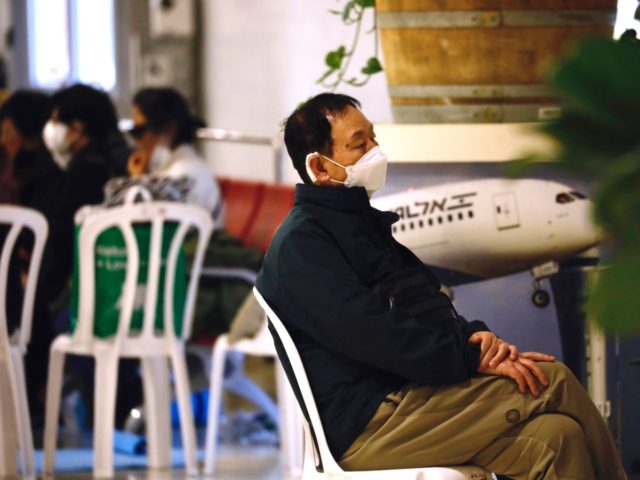TEL AVIV – As many as 100,000 Israelis are currently in self-quarantine amid increasingly dramatic measures imposed by Israel in an effort to curb the coronavirus outbreak, including restricting entry from certain European nations, banning large gatherings, and barring IDF soldiers from travelling overseas.
Foreign Minister Israel Katz on Thursday warned Israel was on the brink of an outbreak of the virus that it would not be able to control.
“We are discussing with leaders and explaining to them the Israeli point of view,” Katz told the Kan public broadcaster. “We are on the verge of an outbreak that we won’t be able to control, and then the whole way of life in Israel will change.”
Katz made his remarks to defend prevention measures authorities announced a day earlier, which some critics have panned as being too extreme and generating mass hysteria.
At a press briefing from the Health Ministry on Wednesday, Prime Minister Benjamin Netanyahu outlined the new measures which included expanding the restrictions on international travel to five European nations and limiting gatherings to under 5,000.
Israelis returning from Germany, France, Switzerland, Spain, and Austria were ordered to self-quarantine for two weeks since leaving those countries. The measure was also applied retroactively to arrivals from the past 14-day period. In addition, any foreign nationals coming from those countries would be barred entry.
Katz said the limitations were in order “to save lives and prevent a spread, and to prevent the isolation of Israel.”
Israel has already restricted entry to foreign nationals who were in Thailand, Singapore, South Korea, Japan, Italy, China and Hong Kong, and Macau in the past 14 days. Israelis returning from those countries were instructed to self-quarantine.
The U.S. was notably absent from the amended blacklist. Katz denied the decision to allow unrestricted travel to and from the U.S. was politically motivated, saying the outbreak there wasn’t yet serious enough to warrant restrict travel.
“We will not endanger the lives of Israelis over political considerations,” Katz said.
As of Friday at noon, all IDF soldiers will be banned from travel abroad. Approximately 600 soldiers are currently in self-quarantine, the military said.
“We have three main tasks,” IDF Spokesperson Brig.-Gen. Hidai Zilberman said Thursday. “Maintaining operational readiness, reducing the spread of the virus and preparing to help out on a national scale-which is not happening at this time.”
So far 15 cases of coronavirus in Israel have been confirmed. One of them, a teen, attended a derby soccer match last week in Tel Aviv, prompting the Health Ministry to instruct fans sitting in his section – which holds some 5,300 seats – to self-quarantine.
The Health Ministry also instructed an entire student body, comprising some 1,150 high schoolers, to self-quarantine after being exposed to the same teenager who attended the soccer game. Separately, an elementary class in another school was also told to go into isolation after their teacher was diagnosed with the virus.
A New York resident in her 50s who visited Israel last week was diagnosed with the virus. The Health Ministry published her itinerary and asked that Israelis who were in the same places she visited at the same time enter self-quarantine.
Israel has also issued a travel advisory against traveling abroad unless absolutely necessary.
Israel’s airport was eerily empty on Wednesday evening, reminiscent of Yom Kippur when there are no flights in or out the country.
After Netanyahu announced that gatherings of over 5,000 people were no longer authorized, international conferences, concerts, sporting events and multiple parades for the upcoming Jewish festival of Purim announced their cancellations.
Netanyahu further advised Israelis to avoid physical contact, including shaking hands.
According to Prof. Itamar Grotto, the Health Minsitry’s deputy director, while the spread of the virus in Israel was “unpreventable,” the drastic measures were an attempt to delay the crisis.
“We can expect a wide-scale outbreak, and we don’t know how strong it will be. It appears that we are talking about a months-long event, so we must remain calm and patient,” he said.

COMMENTS
Please let us know if you're having issues with commenting.